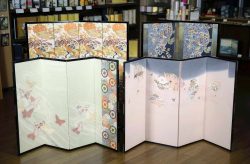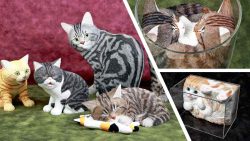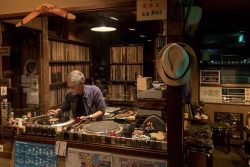Indonesian Artist Eko Nugroho’s Embroidered Paintings Urge for ‘More Love Above The Peace’; Pieces Explore Politics, Social Issues of Indonesia
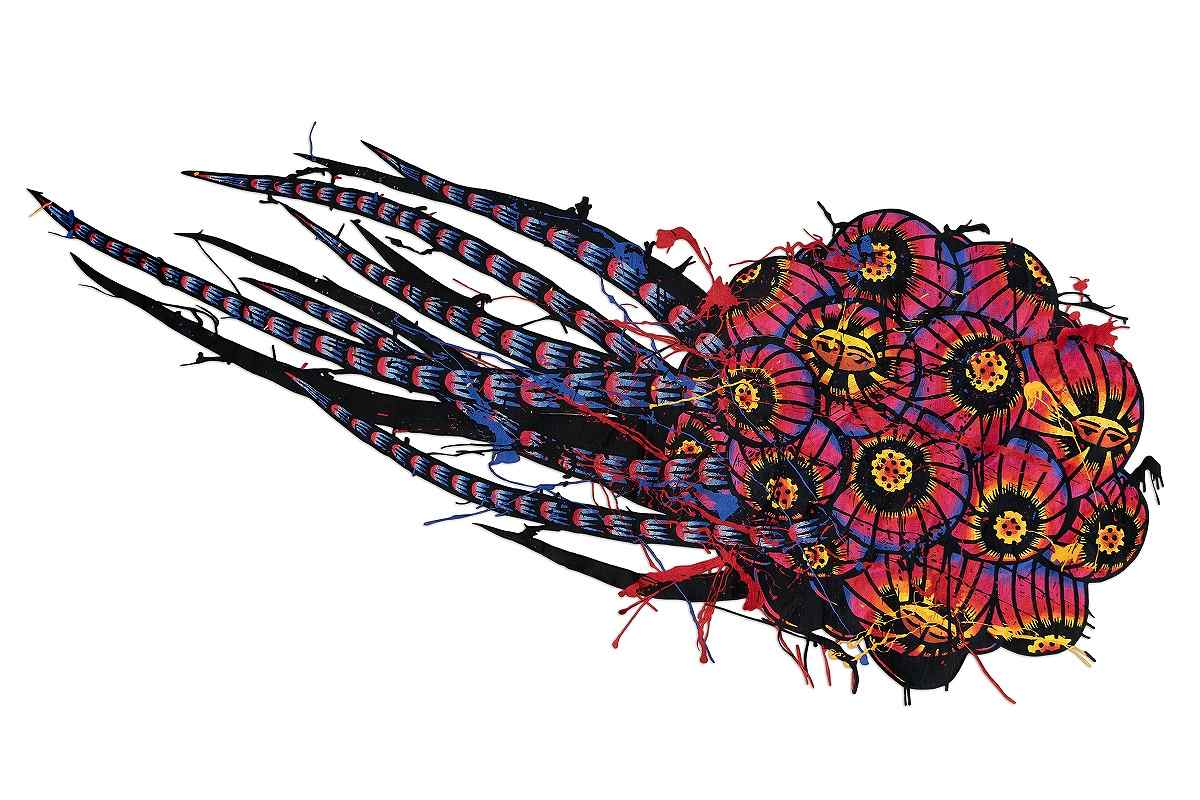
“More Love Above The Peace” #17, 2024, embroidered painting, 136 cm x 331 cm
18:11 JST, September 30, 2024
The vibrant and detailed embroidered pieces of Indonesian contemporary artist Eko Nugroho are currently on display at Art Front Gallery in Shibuya Ward, Tokyo.
The exhibit is named “More Love Above The Peace” because Nugroho believes that love is the key to peace as “peace without love can lead to war.” The works in his mural-like installation delve into political themes of social issues, democracy and identity in modern society.
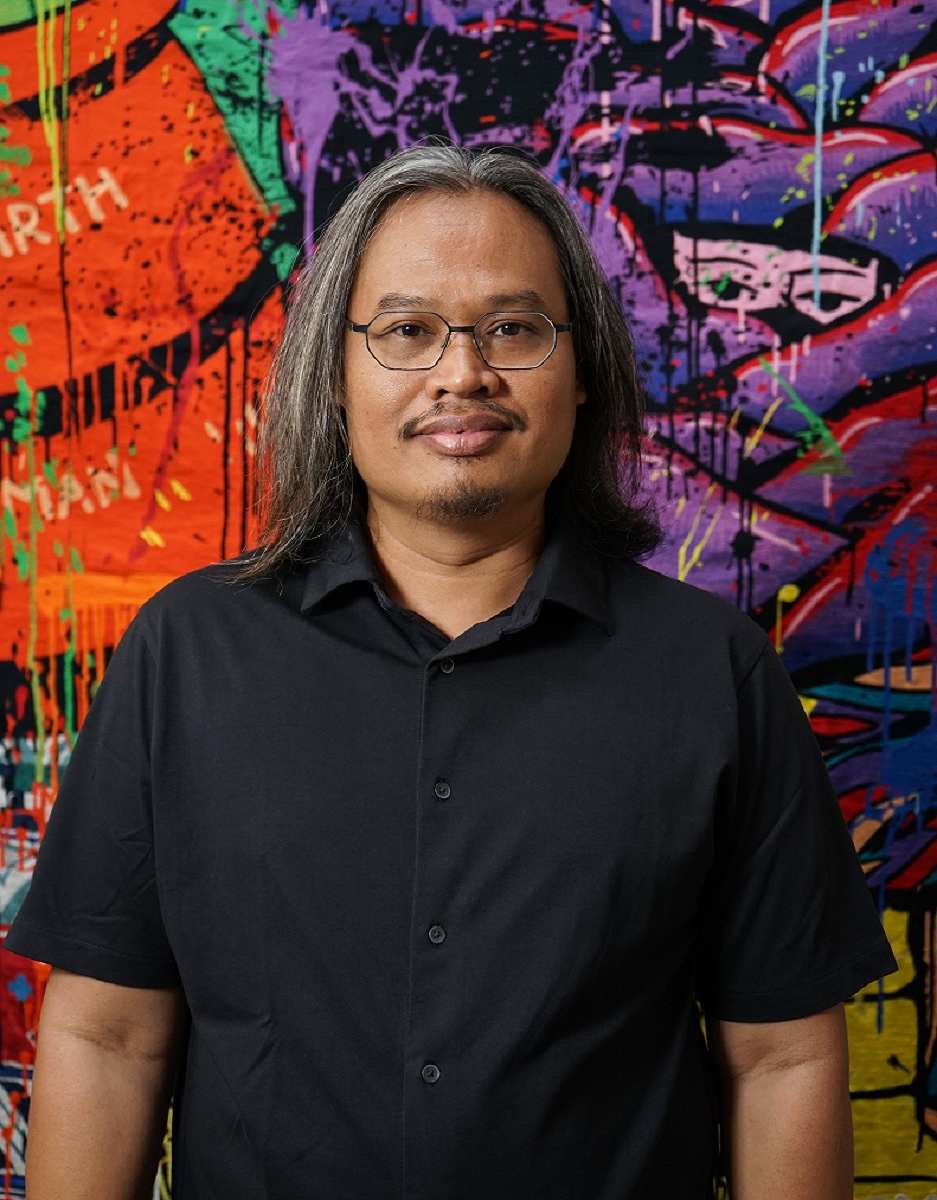
Eko Nugroho
Born and raised in Yogyakarta, Indonesia, Nugroho, 47, said he loved to draw ever since he was a child and art became a source of therapy and relief from the stress of schoolwork. He came of age at a tumultuous time, when student protests and civil unrest took place around 1998, resulting in the resignation of Indonesian President Suharto.
“I participated in my first protest in 1998 and was forever changed politically,” he said in Indonesian through an interpreter during an interview on Aug. 31.
He continues to explore the current state of democracy in Indonesia in his artwork.
Many of Nugroho’s works, including in the gallery installation, feature the motif of covered-up faces, with only the eyes visible. He says the faces are meant to represent those who do not currently have a voice. He also said the faces represent identity and the complicated nature of people possessing and displaying their various selves.
The works are striking, not only because of the faces drawn in comic-like style, but also due to the use of vivid colors and texture of the embroidery, which pops when seen in person.
“Embroidery has a long history in Indonesian culture as a symbol of identity, as the designs that politicians, the military, civil servants, and biker gangs wear various kinds to indicate community and status,” Nugroho said at an event at the gallery on the day.
Despite this rich heritage, the number of embroiderers has greatly decreased as the computerization of embroidery has led to many of them losing their jobs and being forced to work as rideshare or food delivery drivers instead.
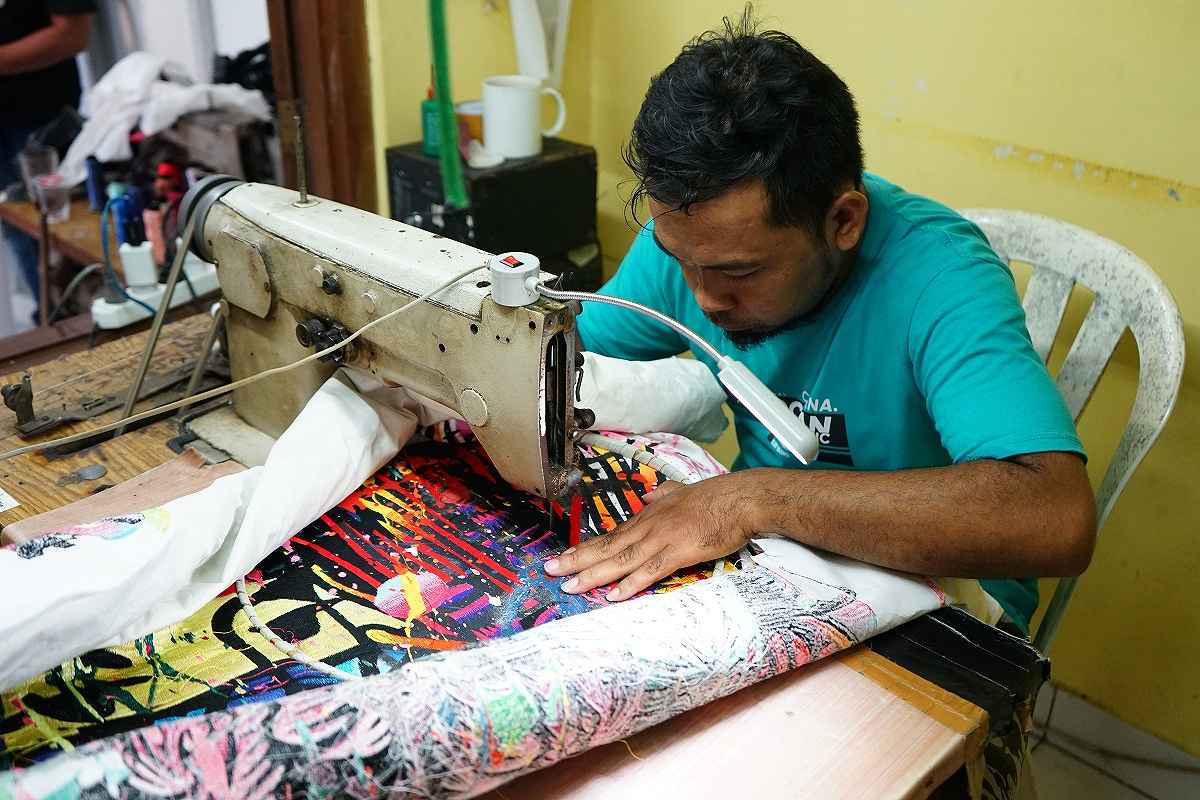
An embroiderer works on one of Eko Nugroho’s pieces
Since 2000, Nugroho has been involved in a project to employ these embroiderers in his collaborative artworks. The process starts with Nugroho painting images on the canvas, then he has simple discussions about the dimensions of the artwork and the logistics with his team of four people. The team then begins its embroidery work with store-bought thread and sewing machines, taking anywhere from one week to a month to complete a work.
Nugroho’s exhibit will be on display at Art Front Gallery in the Daikanyama neighborhood of Shibuya Ward through Oct. 20.
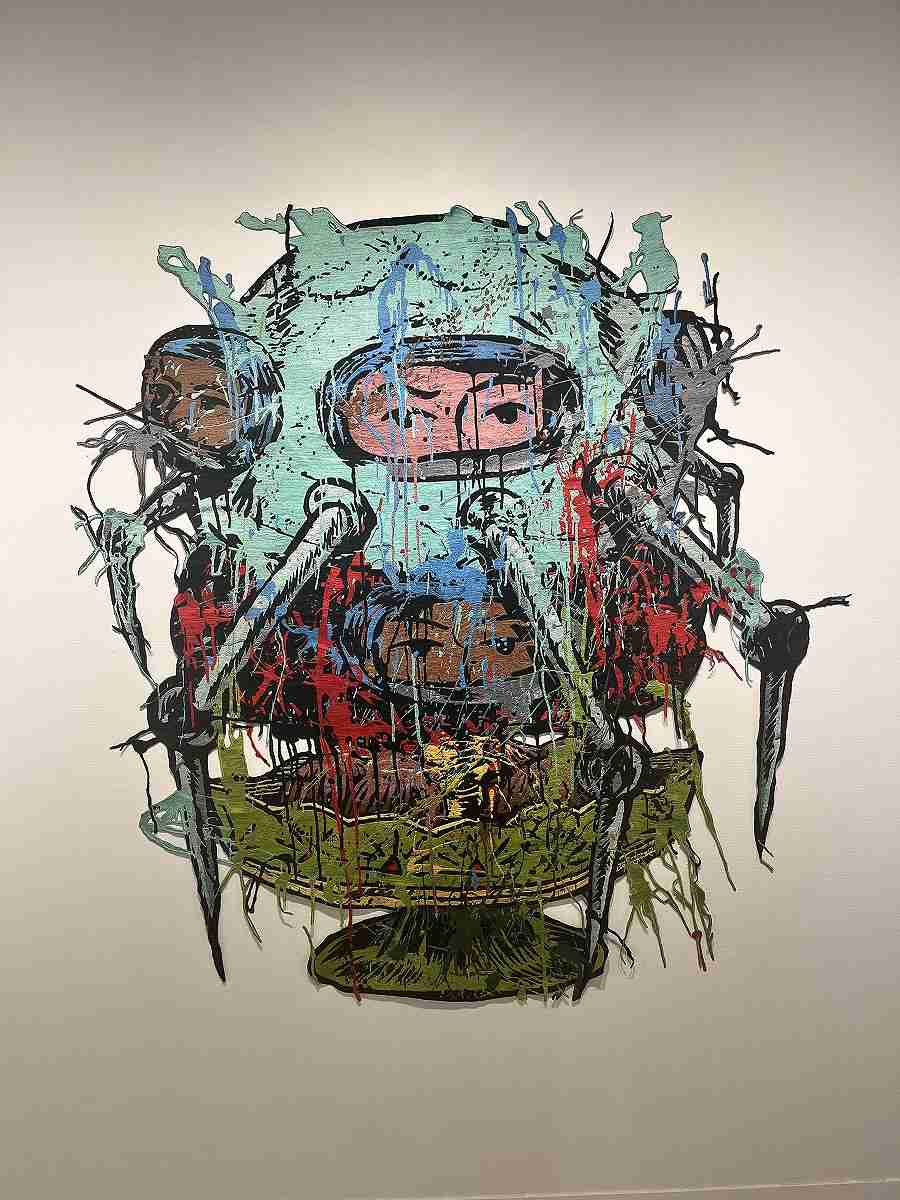
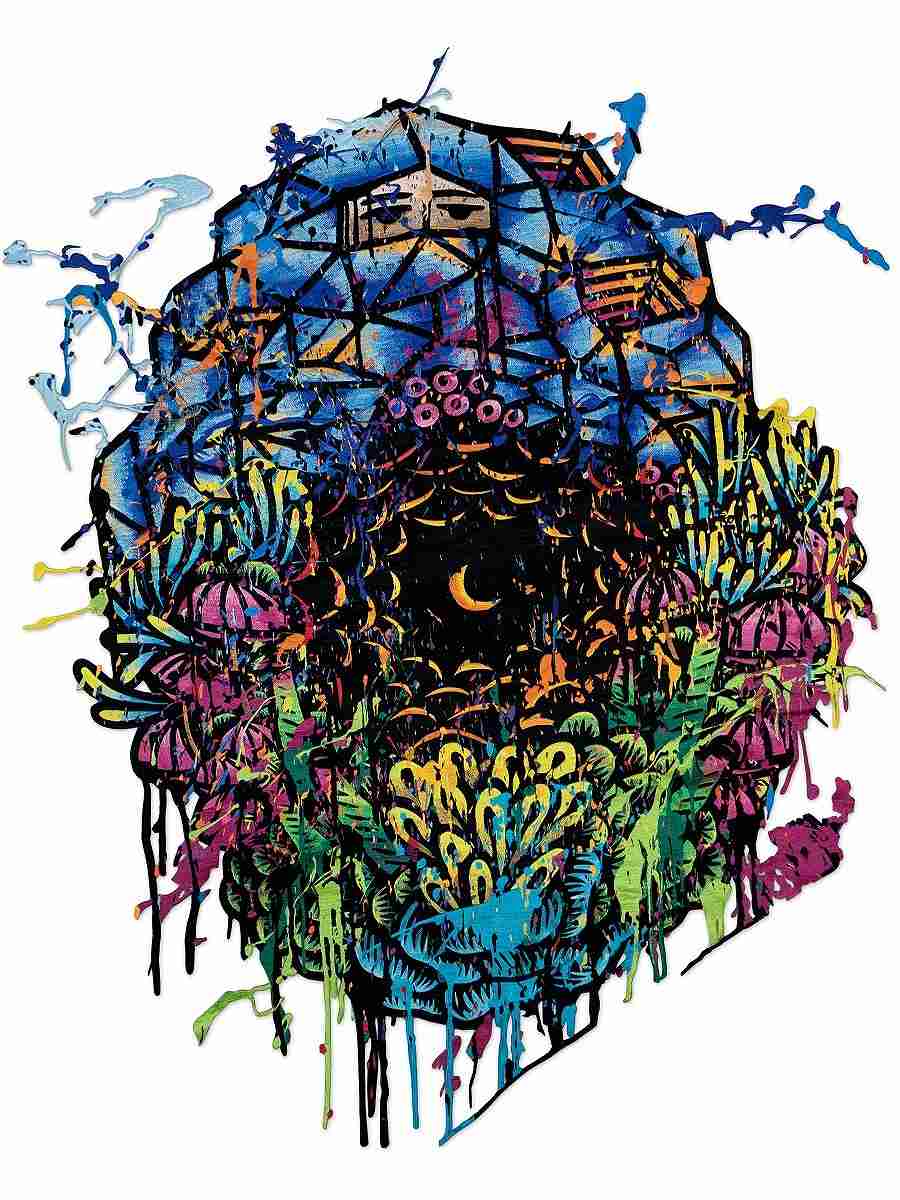
Left: “My Head is My Ice Cream,” 2023, embroidered painting Right “More Love Above The Peace” #33, 2024, embroidered painting, 185 cm x 150 cm
Top Articles in Culture
-
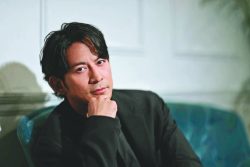
Junichi Okada Wears Three Hats in ‘Last Samurai Standing,’ Serving as Star, Producer, Action Choreographer in Thrilling Netflix Period Drama
-
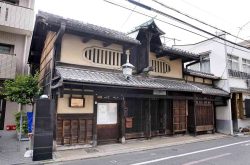
Lifestyle at Kyoto Traditional Machiya Townhouse to Be Showcased in Documentary
-

Maison&Objet Kicks off Near Paris with Japanese Lighting Designers’ Installations on Display, Creating Rich Environment
-

Prestigious Japanese Literature Prize Names Toriyama, Hatakeyama as Winners
-
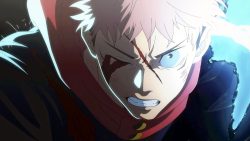
‘Jujutsu Kaisen’ Voice Actor Junya Enoki Discusses Rapid Action Scenes in Season 3, Airing Now
JN ACCESS RANKING
-

Univ. in Japan, Tokyo-Based Startup to Develop Satellite for Disaster Prevention Measures, Bears
-

JAL, ANA Cancel Flights During 3-day Holiday Weekend due to Blizzard
-

China Confirmed to Be Operating Drilling Vessel Near Japan-China Median Line
-

China Eyes Rare Earth Foothold in Malaysia to Maintain Dominance, Counter Japan, U.S.
-

Japan Institute to Use Domestic Commercial Optical Lattice Clock to Set Japan Standard Time



